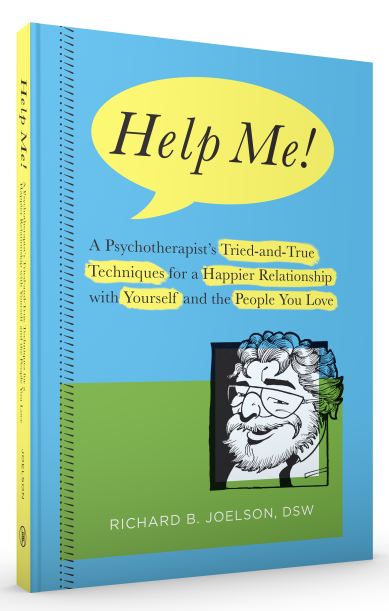The difference between the two and the impact they have on our lives…

Photo by Roman Samborskyi / Shutterstock
The distinction between reacting and responding is an important one and one I have emphasized in my psychotherapy and counseling practice. As far as I am concerned, there is a significant—and, at times, very influential—difference between the two. Responding can be defined as showing a favorable reaction. Reacting, on the other hand, means acting in opposition to a force or influence. Let me illustrate what I believe to be the difference and how it affects us in everyday life.
A reaction may occur within the space of seconds. Since it is usually immediate, it is often without any thought or deliberation, and may, therefore, not be the optimal way in which an individual would have liked or preferred to handle a situation. Reactions are, however, normal and expected. Problems arise when the immediacy of a reaction—as opposed to a response—causes interpersonal difficulties for the reacting individual. Reactions are often emotionally charged and, therefore, tend to be problematic, especially when they may be associated with anger. Those things that we all sometimes say that we wish we could take back are probably reactions, rather than responses.
Responses are typically the outcome of thoughtfulness, reflection, and consideration of the relevant factors, and they are often carefully formulated and well-presented. Responses are not usually those things that we “shoot from the hip,” but offer with care, tolerance for differences, and respect for those with whom we interact.
Pamela and Eric have been in couples counseling ten months and are learning to contain their tendency to react, something that has seriously impaired their relationship, and to respond to each other instead. This has not been easy for two individuals with acknowledged difficulties with anger and impulsivity. In a recent counseling session, Pamela told Eric that she would like the two of them to plan a vacation, the first one in over four years. Eric had an explosive reaction to his wife’s suggestion: “How can you suggest such a dumb thing when you know we’re having financial problems?” He followed this with an emphatic “Absolutely not!” Pamela, not surprisingly, felt attacked and bullied and counterattacked Eric by saying, “it’s your fault that we are having money problems. If you were a better provider, we could take vacations like our other friends!” Perhaps because of their gains in nearly one year of treatment, both of them were able to stop the exchange before it got any worse, and use the session to examine what had just occurred and to express their regrets at having insulted and hurt each other. Since “react” and “respond” had become part of their emotional vocabulary, Eric apologized to his wife, wished that he could have responded rather than reacted, and examined the reasons why he handled Pamela’s suggestion the way he did. Pamela wished that she had been able to respond to Eric’s provocative reaction by not escalating matters with a provocative reaction of her own.
I had Pamela and Eric “replay the scene,” this time demonstrating how they would have liked to respond to each other. This afforded them an opportunity to actually experience a better way of handling matters with each other, rather than just a wish that they had been able to do so the first time around.
When people who are struggling with being too reactive recognize the damage it can do and start to deliberately formulate thoughtful responses, rather than impulsive reactions, their interactions begin to reflect a higher degree of emotional competency. As a result, they live with much less regret and lessen the need to repair the damage to their relationships with others.
